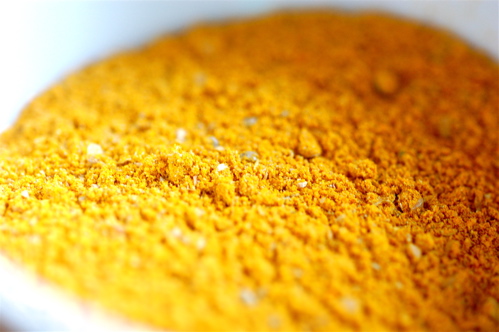There are some foods on the current market that claim to improve brain functions, prevent memory loss, delay or put off the onset of Alzheimer’s disease, and reduce age-related brain degeneration. By adding more of these powerful foods to your daily diet, you could be protecting your brain and keeping it strong and healthy for many years to come. Here are some of the top foods rich in compounds that nourish the brain.
Broccoli & Cauliflower
Broccoli and cauliflower are both excellent sources of choline, a chemical compound that is important in brain development. Researchers have linked choline to increasing neural connections and promoting the development of new brain cells. Prenatal choline supplements have been shown to improve later intelligence. For adults, getting more choline in your diet helps keep your neurotransmitters functioning well, which keeps your memory sharp. Broccoli is also a good source of vitamin K, which appears to improve cognition.
Blueberries
Evidence shows that blueberries may be efficient in boosting or postponing short-term memory loss. Particularly effective in women, it looks like eating 1/2 cup of blueberries (or strawberries) on a weekly basis can have a reduced rate of cognitive decline. Apparently, consuming berries delays memory loss with 2.5 years in aging women.
Tomatoes
Eating tomatoes is the simplest and cheapest way of protecting your brain with food, because the veggie has in composition a nutrient called carotenoids. These specific molecules protect the fat inside the body, which can be extremely valuable for the proper functioning of the brain (the brain itself is made of fat). Rich in beta-carotene and lycopene, tomatoes are powerful antioxidants too. They have the power to eradicate free radicals preventing inflammation. The brain contains high amounts of omega-3 fatty acids, and thus it is particularly vulnerable to free radical damage. Hence, consuming tomatoes can help hinder that susceptibility thus making sure the brain stays healthy.
Chickpeas or Garbanzo Beans
Magnesium is an important mineral for energy metabolism, and it also plays a significant role in brain cell receptors, where it aids in message transmission. Another benefit is that magnesium can increase blood flow to the brain, which is critical for its health and optimal functioning. Most people in the US do not get enough magnesium in their food, and that’s where chickpeas (also called garbanzo beans) can help. These are an excellent source of dietary magnesium.
Walnuts
Walnuts are a great brainpower food. These tasty nuts are a good source of omega-3 fatty acids, which researchers have shown are able to increase the functioning of the brain’s neurotransmitters. These wonderful fatty acids have also been linked to protecting the brain, and maintaining memory and cognition as the body and brain age. A recent study showed that seniors who had high levels of omega-3 fatty acids in their blood also had the largest brain volume. Salmon is one source of omega-3s. Walnuts are another, and it is easy and safe to eat walnuts every day.
Turmeric & Curry
Turmeric is a spice which is a key ingredient in curry, providing it with the characteristic yellow coloring. This spice is the source of the chemical curcumin, which seems to have powerful benefits for the brain. Recent research suggests that curcumin has a role in improving memory, and promoting the growth of new brain cells. It may also be effective in slowing Alzheimer’s disease, by removing amyloid plaques from the brain, which are thought to be a leading cause. Effective for reducing inflammation in general, curcumin can also soothe brain inflammation.
Celery, Peppers & Carrots
Celery is one of the best sources for luteolin, which is a chemical compound that studies show helps with lowering the rate of memory loss that comes with aging. It appears to do this by reducing inflammation in the brain, and many experts now feel that this is a major cause of age-related neuro-degeneration. Thus, eating more celery means you get more luteolin, which can keep your brain healthy as you age. While celery is the best source, peppers and carrots are also good sources of luteolin.
It’s amazing how many benefits food can have on the brain. It’s extremely important to opt for raw fruits and vegetables to get the right amounts of vitamins and nutrients. You can also add supplements from https://www.supplemented.co.uk/ to your diet after consulting the specialist. Combine a healthy diet with regular exercise and you won’t just protect the brain, but your whole body too.



Leave a Reply